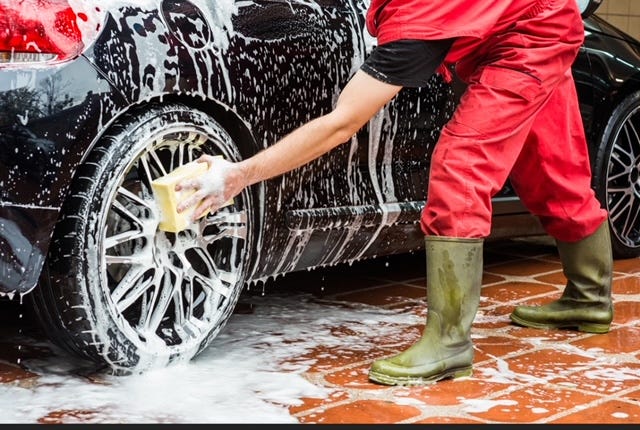About twenty years ago, due to the potential cancer causing risk of alcohol, dentistry shifted away from recommending over the counter antiseptic mouthwash. This was great news to most patients because very few can tolerate the 'burn' associated with the amber colored Listerine...you know, the one your parents and grandparents used. Much more widely accepted was the introduction of a litany of alcohol free mouthwashes that left you with a 'clean' feeling absent the fire breathing potential of old school rinses. But as time has passed, the risk of oral cancer appears to be trivial and dentistry has again embraced the 'bad bacteria' eliminating potential of antiseptic mouthwashes.
Oral rinses are designed to attack the bad bacteria that cause bad breath, bleeding gums and tooth decay. Depending on their level of effectiveness at killing bacterial overgrowth, they can indiscriminately eradicate bacteria that are vital to our overall health. This balance of bacteria in our mouths is knowns as the oral biome. It is upstream of the gut-biome, a topic of much discussion in today's health related news. Scientific research is teaching us that the gut biome affects everything from our weight to our mood.
If the biome is properly nourished with healthy, organic whole foods, the good bacteria keep the bad bacteria in check. Bacteria that promote inflammation and bad breath tend to proliferate when we are mouth breathing, if we have poor oral hygiene and when we eat diets that are heavy in carbohydrates and processed foods. One of the 'quick fixes' my profession has thrown at this ailment is to recommend strong oral rinses that reduce the bad bacteria. There are many studies to demonstrate the efficacy of antiseptic mouthwashes (the only ones with the ADA seal of approval). Chlorhexidine, alcohol and CPC (Cetylpyridinium Chloride) are some common active ingredients that are beneficial at eliminating the undesirable, inflammation promoting bacteria that cause plaque and periodontal disease.
But, as previously stated, when you eradicate the bad bacteria, you indiscriminately eliminate the good bacteria that play a vital role in your overall health. The research behind how the oral biome affects our bodies systemically is only in its infancy. What we are learning is likely only the tip of the iceberg and the negative effects on our health are significant. There have been several recent studies that have seen a causal link between antiseptic mouthwashes and the increased risk of Type II diabetes and high blood pressure. The mechanism by which this occurs is thought to be the elimination of bacteria that promote the nitrate-nitrite-nitric oxide pathway.
If you've been reading my newsletters, I have mentioned the importance of nitric oxide previously. Adequate levels of circulating nitric oxide helps to permit vasodilation which in turn can lower blood pressure. Some of the ways we can achieve ideal nitric oxide levels are by NASAL BREATHING and 'feeding' the nitric oxide producing bacteria that inhabit the oral cavity. Because of the ubiquitous nature of this molecule, researchers believe we are likely to find other significant health impacts affected by this orally produced bacteria.
Like most things in health, there is no one-size fits all approach to care. There are certainly times when an antiseptic mouthwash is needed and beneficial for a short treatment duration. My recommendation is guidance for those seeking to optimize their oral health who are not currently experiencing an acute dental condition.
I am going to attempt to keep this simple: the best approach is ALWAYS to eat a healthy, whole foods diet. Foods rich in nitrates are green leafy vegetables, garlic, beets and nuts/seeds. Try your best to eliminate processed, sugary foods that challenge both the health of your teeth but also the health of your body. When it comes to your oral hygiene routine, I will continue to promote simple and natural products.
Caring for your teeth is like washing your car. I love this analogy because it gives you the visual of what you're doing with each step of your oral hygiene routine.
Step 1: rinse with a water (or salt water) solution for 30-60 seconds before brushing. Think of this like the pre-rinse you give your car prior to pulling out the sponge or brush. In the oral cavity, this will help to remove larger food particles, loosen soft plaque and neutralize acidity.
Step 2: floss but only floss the teeth you want to keep! Think of flossing like getting the tiny brush to assist removing the bug debris from your car.
Step 3: clean your tongue...more detail to follow in my next newsletter. This is the cleaning of your floormats. Your tongue is a carpet like surface that attracts food particles and other waste.
Step 4: brush for two minutes, ideally using an electric toothbrush and a natural/organic toothpaste. This is when you get the big sponge out to eliminate the road grime from your vehicle.
Step 5: rinse again or better yet, use a water flosser to eliminate all that the floss and brush have just loosened. We always finish a good auto wash with a thorough rinsing to remove the soap scum produced by Steps 2 and 3.






I hope the dental profession doesn't take as long as the medical profession to incorporate emerging insights in the various microbiomes of the human body, into daily practice!
Have you any experience with using myrrh as a mouthwash? I use it a couple of times per week, after flossing and brushing. Unsurprisingly, there's more research on it from non-Western institutions, like this study: https://opendentistryjournal.com/VOLUME/13/PAGE/1/FULLTEXT/#:~:text=Based%20on%20the%20results%20of,using%20myrrh%20mouthwash%20reduces%20plaque.
Of course, I can't even say the word 'myrrh' without thinking of the Three Wise Men scene from The Life of Brian 🤣: https://youtu.be/3pxFr3t-tHw?si=O2CzAkDo4pT5Tqd5
I’ve been using a chlorine dioxide mouth rinse, I don’t believe it wrecks my mouth microbiome though. It has helped with my bad breath!
The dentist I recently saw offers Guided Biofilm cleanings (https://m.youtube.com/watch?v=dOJoSbZ1J3I). I declined though because isn’t it good to have some biofilm in the mouth microbiome? I asked them this and then they asked where I got my information, but it’s mostly just a hunch, so I didn’t have a very good answer. What do you think of biofilm?